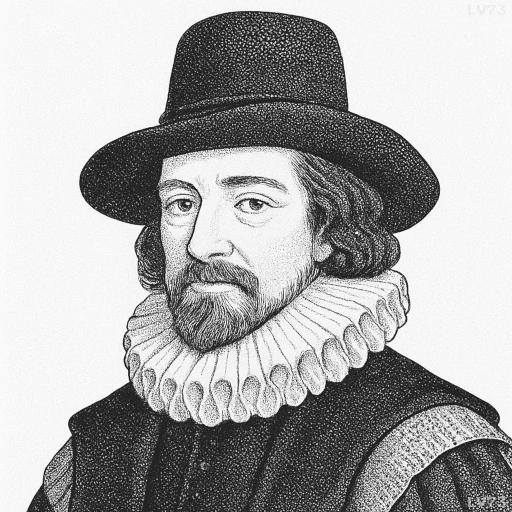“Truth emerges more readily from error than from confusion.”

- January 22, 1561 – April 9, 1626
- Born in England
- Philosopher, theologian, jurist, politician, aristocrat
table of contents
Quote
“Truth emerges more readily from error than from confusion.”
Explanation
In this quote, Francis Bacon suggests that error, while often a source of mistakes or misunderstandings, can be more productive in the pursuit of truth than confusion. Bacon implies that when we make an error, we are at least testing a hypothesis, drawing conclusions, or taking a step forward in the process of discovery. Errors provide clarity by allowing us to see what doesn’t work or what is not true, and this process leads us closer to the actual truth. In contrast, confusion—a state of being overwhelmed or unable to think clearly—does not offer the same opportunity for clarification or learning. Confusion can cloud judgment, whereas error gives us a concrete starting point from which to correct and improve.
Bacon’s view reflects his commitment to the scientific method and empirical reasoning. During the Renaissance and the Scientific Revolution, there was an increasing recognition that knowledge could be gained through trial and error, and that making mistakes was a natural and necessary part of learning and discovery. Bacon, as a key figure in the development of modern science, understood that the path to truth is often winding and full of missteps, but those missteps are still essential for refining our understanding of the world.
In modern times, this quote resonates with contemporary ideas about learning from failure and critical thinking. Today, we recognize that errors in experimentation, business, or even personal growth can lead to important insights, and that avoiding mistakes entirely can hinder progress. Bacon’s insight encourages us to embrace the learning process, where errors can be stepping stones to greater understanding, while confusion—without the clarity of analysis—simply obstructs that path. Bacon’s wisdom reminds us that making mistakes is often a more direct route to truth than being stuck in a state of indecision or ambiguity.
Would you like to share your impressions or related stories about this quote in the comments section?



